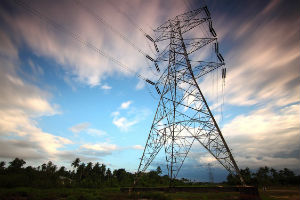Expert comment: Energy cap could stifle long-term savings opportunities for consumers
05 October 2017

The cap on energy prices proposed by the Government could have the unintended consequence of stifling measures to lower bills long-term, an energy economics expert has warned.
In her speech at the Conservative Party Conference, Prime Minister Theresa May revived plans for a price cap, with the aim of lowering bills for consumers across the UK as early as this winter. Many of these customers are on tariffs that are typically more expensive than other available deals, with energy companies under pressure to change the way energy is supplied and paid for.
However, Professor Jacopo Torriti, energy economy analyst at the University of Reading, argues consumers themselves have the power to lower energy prices by changing when they consume electricity to reduce the surges in demand on energy suppliers at peak times. New tariffs aimed at rewarding those who are able to be flexible with lower prices are one potential innovation that could save consumers money.
“The Government should pay attention to the winners and losers from such tariffs if it wants to protect customers and have flexible demand at the same time" - Professor Jacopo Torriti, University of Reading
Professor Torriti said: “Given the increasing complexity of the energy system, it is important that the significant advantages of flexibility enabled by cost-reflective tariffs are not ignored in the short-term by attempts to reduce consumer bills.
“Summary Energy prices have been in the eye of the storm for some time in the UK. Price caps were promised by both main political parties ahead of the 2017 General Election, but this alarmed some analysts and economists as the introduction of caps could stifle competition and innovation, and reduce opportunities for new entrants in the market.
“It is important that any measures to reform energy pricing and help vulnerable families are compatible with current constraints and future developments in the electricity system.”
Cost-effective innovation
Professor Torriti is leading the University of Reading’s REDPeak (Residential Electricity Demand: Peaks, Sequences of Activities and Markov chains) research project, which is seeking to gather data on energy use at peak times and discover which social groups might be able and willing to change their consumption. He also leads the EPSRC-funded DEePRED (Distributional Effects of Dynamic Pricing for Responsive Electricity Demand) project. This is aimed at better understanding how dynamic tariffs could impact on different social groups.
The researchers argue any such moves to lower prices in the short-term, such as through the proposed price cap, must be balanced with efforts to ensure there is enough demand flexibility in the market in the longer term.
Time of Use tariffs are one example of a potentially truly cost-effective innovation, as they reward those willing to use electricity at off-peak times with a lower price. While users who are unable to be flexible could end up paying more, others would benefit substantially. The model has been used successfully in other countries.
Professor Torriti added: “The Government should pay attention to the winners and losers from such tariffs if it wants to protect customers and have flexible demand at the same time.”
